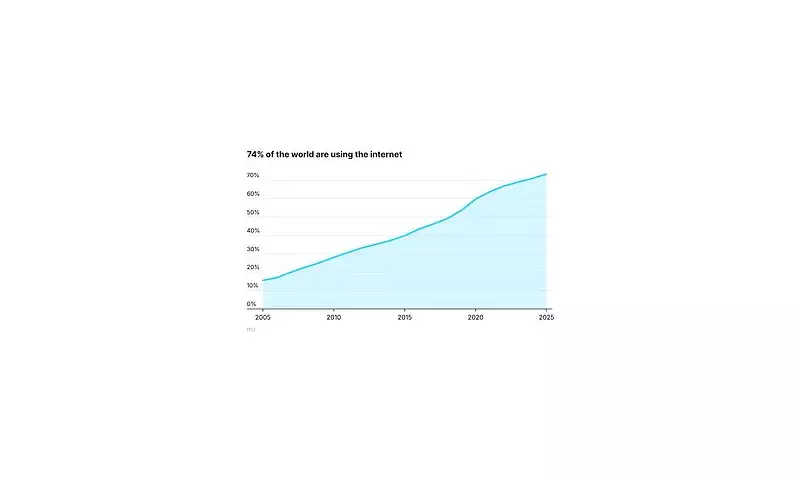
A new report from the United Nations has delivered a stark reminder that the digital revolution has bypassed billions, revealing that more than a quarter of the world's population has never used the internet.
The study from the UN's International Telecommunication Union (ITU) found that while approximately six billion people are now online – an increase of 200 million from 2024 – a staggering 2.2 billion people remain completely offline.
The Persistent Connectivity Gap
Despite the widespread availability of mobile networks, the number of people who have never used the internet has seen only a slight decrease, dropping from 2.3 billion in 2024. This is a particularly shocking statistic given that 3G mobile networks already cover 96 per cent of the global population.
The report identifies a deep 'connectivity gap' that sharply divides the world's richest and poorest regions. An overwhelming 96 per cent of the 2.2 billion offline individuals live in low or middle-income countries.
In low-income nations, where the average annual income is less than $1,135 per person, a mere 23 per cent of the population uses the internet. Africa is the region most affected, with only 36 per cent of its population having ever been online.
Regional Disparities and Internal Divides
The contrast with wealthier parts of the world is dramatic. In Europe and the Americas, only eight to 12 per cent of people are not online. Among high-income countries, where the average income exceeds $13,935 per person, about 94 per cent of the population is connected.
The report also highlights significant divides within countries themselves. Young people globally are far more connected, with 82 per cent of 15 to 24-year-olds using the internet compared to 72 per cent of the general population.
This generational gap is even more pronounced in regions with lower overall uptake. In Africa, half of all young people use the internet, a significantly higher proportion than the one-third of the general population who are online.
A stark urban-rural divide persists as well. Almost half (42 per cent) of people in rural areas have never used the internet, compared to just 15 per cent of city-dwellers. Even in Europe, 13 per cent of rural inhabitants remain offline.
The Path to Universal Connectivity
ITU Secretary-General Doreen Bogdan-Martin emphasised the urgency of the situation, stating: 'In a world where digital technologies are essential to so much of daily life, everyone should have the opportunity to benefit from being online.'
She added that the report shows how today's digital divides are defined by speed, reliability, affordability, and skills, all of which must be prioritised to achieve universal connectivity.
While 5G networks now cover more than half the world, and only 312 million people lack access to at least a 3G signal, affordability remains a critical barrier. The UN notes that the price of a data-only mobile contract is only affordable for 60 per cent of people in low and middle-income countries.
Cosmas Zavazava, Telecommunication Development Bureau Director at the ITU, concluded: 'Reliable data are the foundation of effective digital policies and of our shared vision to connect the world. By working together and directing resources where the needs are greatest, we can ensure that no one is left behind.'





